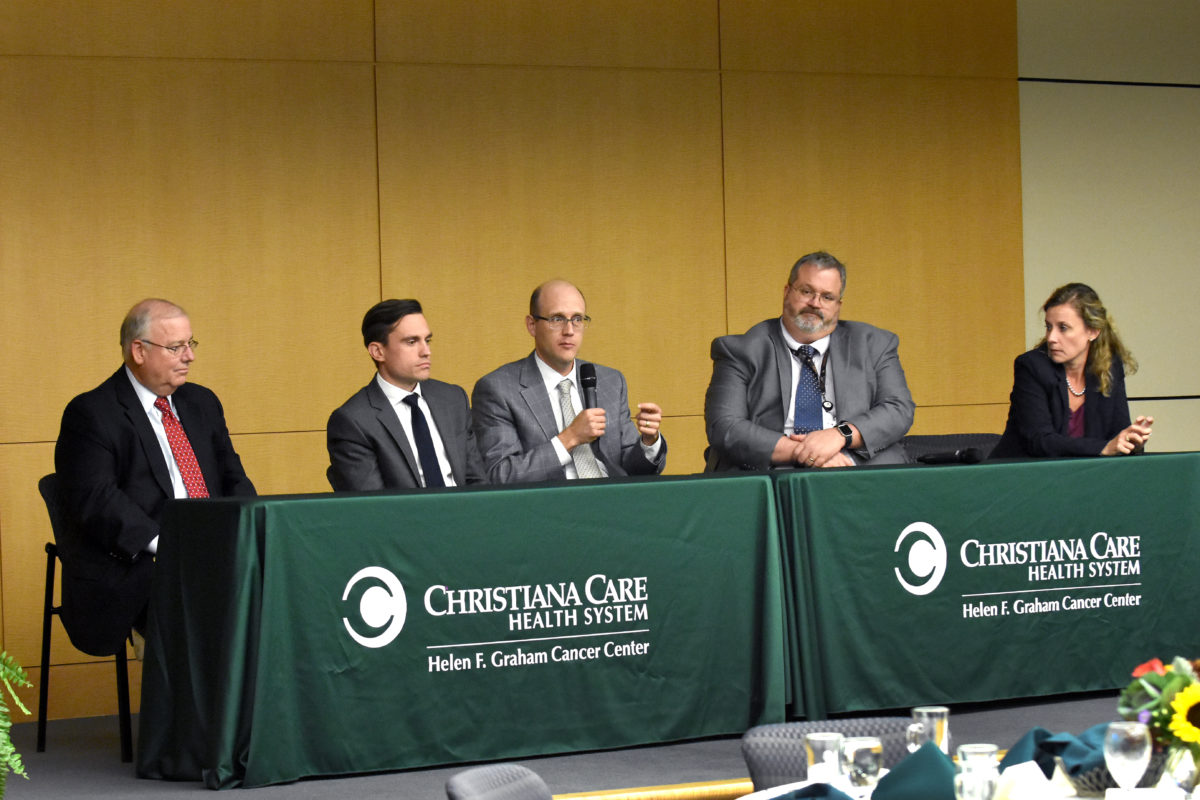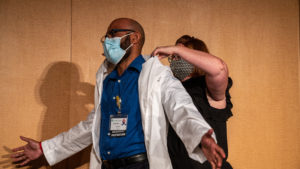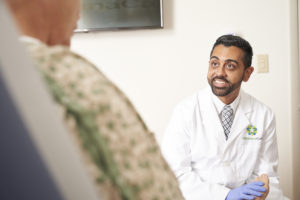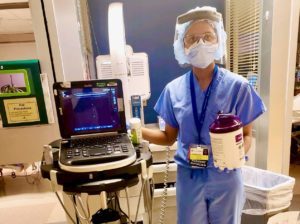Lung cancer kills more people in the United States than any other cancer. Yet only in recent years have screenings been recommended for people at elevated risk of developing lung cancer.
Collaborative initiatives at Christiana Care Health System, across the state and across the nation are identifying at-risk individuals through potentially life-saving screenings.
At the 2016 Annual Cancer Symposium, Sept. 22 at the John H. Ammon Medical Education Center, presenters provided insights on the National Cancer Institute (NCI) Phase III trial results of lung cancer screenings, as well as early results of the Delaware Statewide Lung Cancer Screening Program.
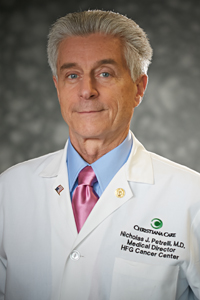
“Lung cancer deaths every year exceed the total deaths from breast, colorectal and prostate cancers,” said Nicholas J. Petrelli, M.D., FACS, the Bank of America endowed Medical Director of Christiana Care’s Helen F. Graham Cancer Center & Research Institute. “Early detection through lung cancer screening and prevention with smoking cessation programs drive some of the goals of Vice President Joe Biden’s Moonshot Program to accelerate progress in cancer prevention, diagnosis, treatment and care.”
NCI trial results indicated that screenings help to diagnose lung cancer earlier, resulting in a 27 percent reduction in all-cause mortality and a 20-percent reduction in lung-cancer-specific mortality, said Charles R. Mulligan, M.D., chair of Thoracic Surgery at the Graham Cancer Center.
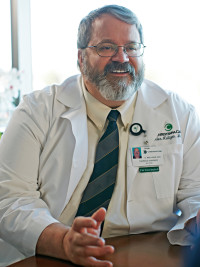
Participants in the trial were current or former heavy smokers ages 55 to 74. Individuals were required to have a smoking history of at least 30 pack-years and were either current or former smokers without signs, symptoms or history of lung cancer. They received annual low-dose CT scans or chest X-rays for three consecutive years. Researchers concluded that participants who received CT scans were 15-20 percent less likely to die than individuals screened with X-rays.
“You see a lot more on a CT scan than you do on a chest X-ray,” Dr. Mulligan said.
While the screenings detected cancers earlier, he noted that there is still work to be done. One-third of the lung cancers in participants developed after the screening period ended.

Delaware currently is the only state with a statewide lung cancer screening program, said Stephen S. Grubbs, M.D., vice president of clinical affairs for the American Society of Clinical Oncology.
The Delaware Cancer Consortium and Screening for Life already are diagnosing lung cancers. To date, 52 percent of the diagnosed cases are in early stages when the cancer is most treatable.
“Thanks in large part to the dedication of nurse navigators, 98 percent of the people who are eligible have received screenings,” Dr. Grubbs said.
Christiana Care’s Lung Screening Program takes a consultative, multidisciplinary approach, with nurse navigators coordinating care that is convenient and accessible, said Roger Kerzner, M.D., assistant medical director for specialty services, The Medical Group of Christiana Care. “There is smoking cessation counseling at every step, every touchpoint,” he said.
A collaborative research study between the lung screening program and Christiana Care’s Family & Community Medicine Service Line helps identify patients who are eligible.
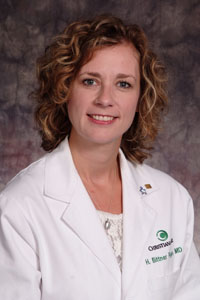
“The idea is outreach,” said Heather Bittner Fagan, M.D., associate vice chair of research, Family & Community Medicine. “We know that certain populations will be harder to reach. Plus, when I know my patient and their preferences, it helps start a good conversation about screening.”
She discussed shared decision-making modules for lung cancer screening in which providers partner with patients so individuals can make informed choices.
“We wanted to make sure that every patient who underwent a low-dose CT scan participated in shared decision-making,” she said.
To that end, all screening must be generated by a face-to-face visit with a physician or other qualified provider, such as a physician assistant or nurse practitioner.
Risks include false positives, false negatives, radiation exposure and overtreatment.
Michael Hewitt, D.O., a Christiana Care radiologist, explained why scars and infections in the lungs can sometimes produce false positive screenings. He also reviewed potential complications of lung biopsies.
How to connect patients with lung screenings
The U.S. Preventive Services Task Force recommends annual screening for lung cancer with low-dose CT in high-risk individuals.
“Health care providers can make a significant impact in reducing the cancer burden in our state by connecting their patients with screenings that have the potential to save lives,” said Nora Katurakes, MSN, RN, OCN, Community Health Outreach and Education manager at the Graham Cancer Center.
Christiana Care offers lung screenings for patients who have a history of heavy smoking. The Lung Health and Screening Program (LHSP) offers:
- A dedicated nurse navigator to assist with the entire screening process, from scheduling to following up with test results.
- A low-dose CT lung scan, which is a protocol that was found to be effective in the National Lung Screening Trial.
- A shared decision-making clinic to meet with the health provider for information about the program and to discuss risks and benefits of lung cancer screening.
- A multidisciplinary team to assist with abnormal findings, referrals and follow-up.
- A health coach available to provide smoking-cessation counseling.
Patients may qualify for the lung cancer screening if they are 55-77 years of age, have a history of smoking the equivalent of one pack a day for 30 years, are currently smoking or have quit within the past 15 years and have not had a CT scan of the lungs within the last 12 months.
To learn more, call Julia Adams, BSN, RN-BC, CCRC, the nurse navigator, at 302-623-2273 or go to https://christianacare.org/health/healthtools/lunghealthandscreening/
For for individuals meeting the same criteria who are age 55-80 and meet specific income guidelines, The Delaware Screening for Life program also offers Low dose-CT scans. For details, call 302-744-1040.
